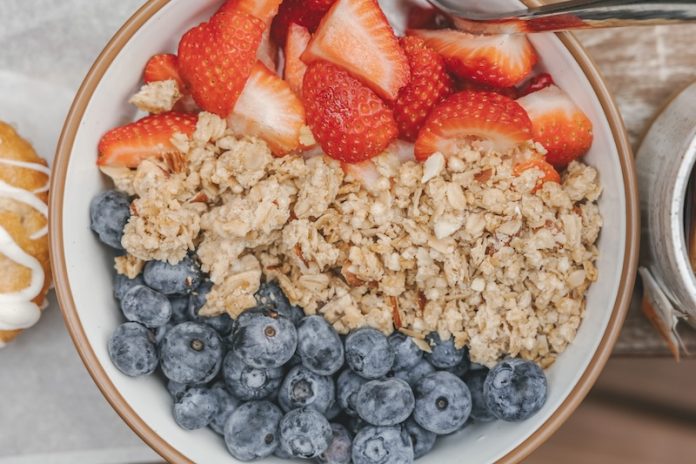
Stress is a common and pervasive issue that affects many individuals.
While traditional methods of stress management include exercise, mindfulness, and relaxation techniques, emerging research suggests that diet may also play a significant role in stress reduction.
A recent study conducted by researchers at APC Microbiome Ireland has explored the relationship between dietary choices, gut microbiota, and stress levels.
The study’s findings indicate that a diet rich in fermented foods and fiber can lead to a significant reduction in perceived stress levels.
The Gut-Brain Connection
Over the past decade, mounting evidence has revealed the profound impact of diet on mental health. This connection is believed to operate through the gut-brain axis, a bidirectional communication system between the gut and the brain.
This intricate relationship allows for continuous interaction between essential bodily functions like digestion and emotions.
Moreover, it highlights the influence of the gut microbiome, the trillions of bacteria residing in the digestive system, on cognitive and emotional processes.
To investigate the connection between diet and stress, the research team recruited 45 healthy individuals with relatively low-fiber diets, ranging in age from 18 to 59.
Half of the participants were randomly assigned to follow a “psychobiotic” diet, rich in prebiotic and fermented foods. The other half served as a control group and received general dietary advice based on the healthy eating food pyramid.
The psychobiotic diet aimed to enhance mental health by including foods linked to improved well-being.
Key Findings
The study yielded several important findings:
Participants following the psychobiotic diet reported lower levels of perceived stress compared to those on the control diet.
A direct correlation was observed between adherence to the psychobiotic diet and reductions in perceived stress levels. Individuals who consumed more psychobiotic foods experienced greater stress reduction.
Both groups showed improvements in sleep quality, with the psychobiotic diet group reporting more significant enhancements.
While the psychobiotic diet led to subtle changes in gut microbiota composition and function, it resulted in significant alterations in the production of certain key chemicals by these microbes. Some of these chemicals have been linked to mental health, potentially explaining the reduction in perceived stress.
Conclusion
The study provides compelling evidence that specific dietary choices can effectively reduce perceived stress levels.
While the results are promising, it is essential to acknowledge the study’s limitations, including its small sample size, short duration, and focus on healthy participants.
Further research is needed to investigate the long-term effects and potential applications of such diets in individuals with stress-related disorders like anxiety and depression.
This study adds to the growing body of evidence supporting the association between diet, gut microbiota, and mental health.
It highlights the potential for dietary interventions to complement traditional stress management techniques and improve overall well-being.
As such, individuals seeking stress reduction may want to consider incorporating more fiber and fermented foods into their diets, as these dietary choices could contribute to a reduced perception of stress.
Follow us on Twitter for more articles about this topic.
Copyright © 2023 Scientific Diet. All rights reserved.





